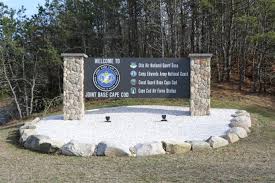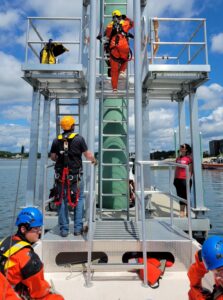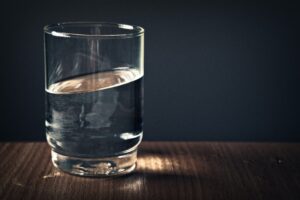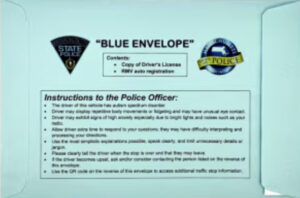
JOINT BASE CAPE COD – The U.S. Environmental Protection Agency (EPA) has completed its draft review of the proposed machine gun range at Joint Base Cape Cod, declaring that the project could pose a threat to public health.
The draft determination under the Safe Drinking Water Act proposes that the project is not safe, as the Cape does not have another source of alternative drinking water if its sole aquifer becomes contaminated by training activities.
If the EPA’s determination becomes final, then the project will not be eligible for federal financial assistance.
The determination is open for public comment for 60 days.
A public hearing will also be held on May 24 at the Center for Active Living on Quaker Meetinghouse Road in Sandwich.
Officials with the Army National Guard could not be reached for comment.
The following is the full statement from the EPA:
The U.S. Environmental Protection Agency (EPA) is issuing a draft determination under the Safe Drinking Water Act that a Multi-Purpose Machine Gun Range proposed to be constructed by the Massachusetts Army National Guard may contaminate the Cape Cod Aquifer, thereby creating a significant public health hazard. There are no reasonably available alternative drinking water sources for Cape Cod residents should the aquifer become contaminated. EPA will accept public comment on this proposal for 60 days, through June 26, and will hold a formal Public Hearing on May 24, 2023.
“Cape Cod’s Sole Source Aquifer is a public health resource that must be protected,” said EPA Regional Administrator David W. Cash. “We have studied the proposed machine gun range very carefully because EPA recognizes the need for our armed forces to maintain readiness and provide training to service members. However, the risk of irreparable damage to the only drinking water source on Cape Cod is too significant.”
The Sole Source Aquifer Program, used by EPA in making this draft determination, provides EPA a proactive tool to protect this valuable water supply, thus avoiding expensive and consequential cleanups. Should this determination become final, no commitment of federal financial assistance may be allowed.
The Massachusetts Army National Guard proposed construction of a new permanent 138-acre machine gun range at Joint Base Cape Cod. In August 2021, EPA started a review of the proposed project and has now completed an exhaustive 20-month scientific review of the design and operational plans for the proposed site to evaluate potential impacts to Cape Cod’s Sole Source Aquifer. The Safe Drinking Water Act (SDWA) mandates a strong preventative approach where a drinking water supply is highly dependent on a single aquifer, and EPA’s draft determination is based on protecting Cape Cod’s sole source of drinking water.
During the review, EPA has carefully evaluated information submitted by and communicated with the Massachusetts Army National Guard to seek clarifying information, and reviewed thousands of pages of documents. Following this thorough evaluation, EPA has provisionally concluded that the proposed range may contaminate the aquifer, therefore causing a significant public health hazard for more than 220,000 year-round of Cape Cod residents. If the aquifer were contaminated, surrounding areas might need to construct and operate expensive advanced drinking water systems, overburdening communities that already face economic hardships.
EPA will open a 60-day public comment period, from April 27 through June 26. Further, EPA will hold a May 24th public hearing as described more fully below to accept verbal comments.
In 1982, the Cape Cod Aquifer was designated as the sole or principal source of drinking water for Cape Cod. As a result, projects proposed to be constructed on Cape Cod receiving federal financial assistance may be subject to a sole source aquifer review, at EPA’s discretion, as outlined in the Safe Drinking Water Act. EPA defines a sole source aquifer as one where the aquifer supplies at least 50% of the drinking water in its service area and there are no reasonably available alternative drinking water sources should the aquifer become contaminated.
EPA’s review focused primarily on the project’s potential impacts to the aquifer and was not a comprehensive review of all other potential environmental or public health impacts, such as those evaluated by other agencies through their environmental reviews and their public involvement mechanisms.
Protecting Cape Cod’s source of drinking water continues to be a high priority for EPA and the many parties involved in the cleanup and management of Joint Base Cape Cod. EPA appreciates the long-standing work of the Massachusetts Army National Guard, including training soldiers to secure the Commonwealth and the nation against many threats. The Environmental Management Commission and the Massachusetts Department of Environmental Protection are also key partners in ensuring environmental and public health protection throughout Cape Cod. Throughout the SSA project review, EPA has coordinated closely with and received input from the Massachusetts Army National Guard, the Massachusetts Department of Environmental Protection, and the state Environmental Management Commission.
Public Engagement Process
EPA will accept public comments on this proposed decision for 60 days, until June 26, 2023. During this time, the public and interested stakeholders may submit written comments for EPA’s consideration. Written comments may be submitted to: [email protected] .
EPA will also hold a public hearing to receive oral comments on May 24, 2023. The public hearing will be held at:
Center for Active Living
70 Quaker Meetinghouse Road
Sandwich, Mass.
The formal public hearing will begin at 7:00 p.m. and will be preceded by a public meeting beginning at 6:30 p.m. Individuals with accessibility or translation requests may contact [email protected] for assistance.
All comments timely received will be reviewed and considered by the Region, along with other available information. If, after evaluating this material, EPA’s Regional Administrator continues to believe that the proposed project may create a significant public health hazard, he will then forward the information to the EPA Administrator with a recommended conclusion that the project may contaminate the aquifer through the recharge zone so as to create a significant hazard to public health. The EPA Administrator will then make a final determination. Should this determination become final, no commitment of federal financial assistance (through a grant, contract, loan guarantee, or otherwise) may be allowed.
More Information:
Cape Cod Sole Source Aquifer and EPA documents about this draft determination (https://www3.epa.gov/region1/eco/drinkwater/capecod.html)






















